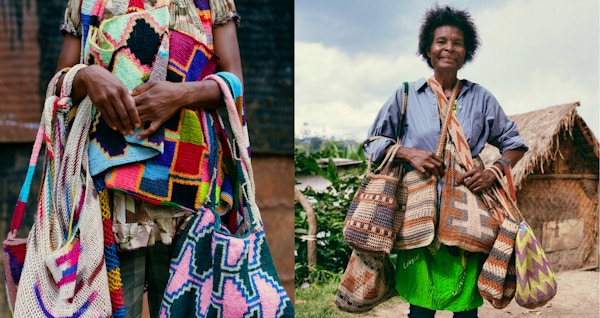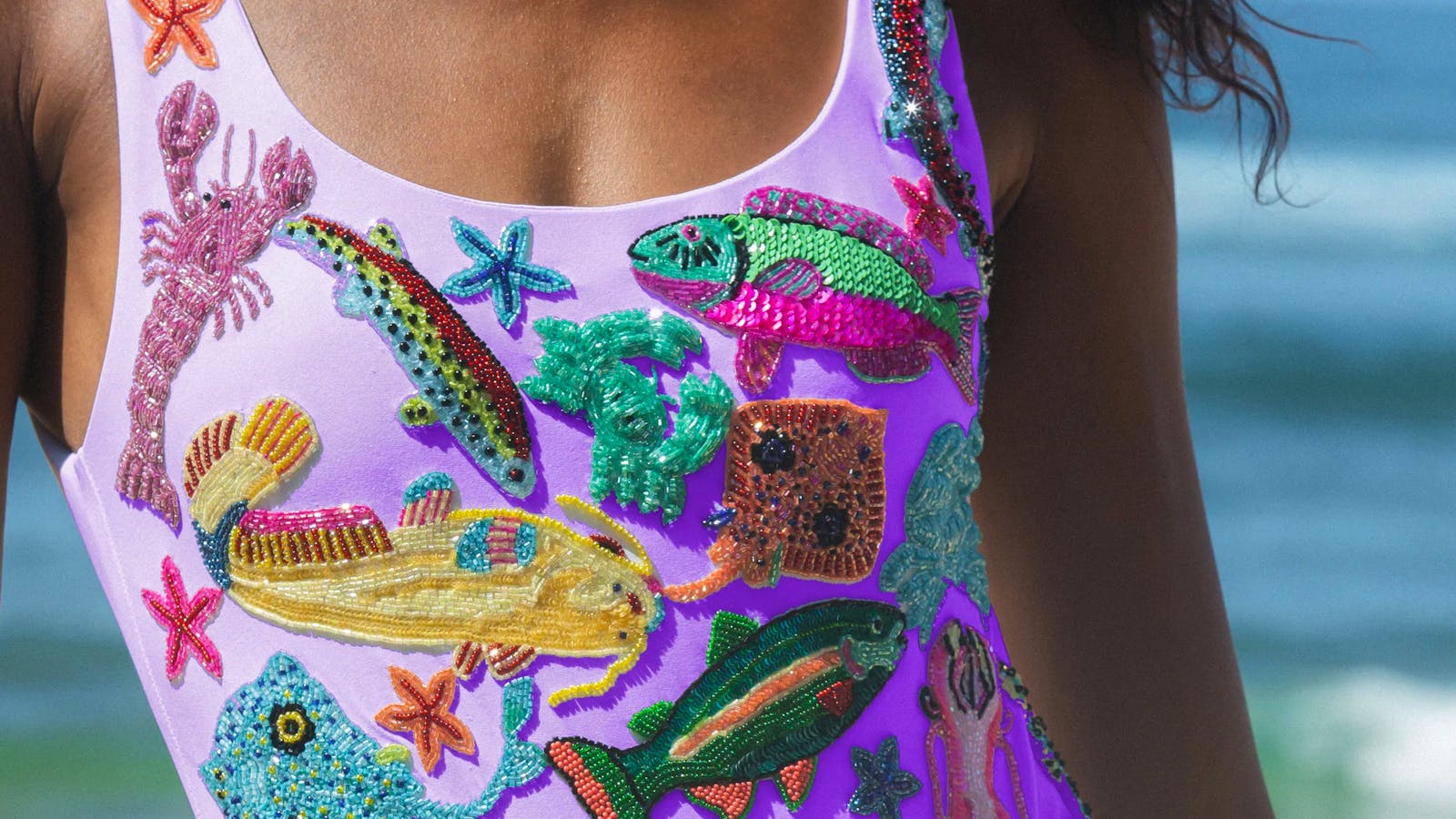Sherman describes Papua New Guinea as stunningly beautiful but also quite a dangerous place for women, with multiple tribal groups and over 800 languages. She discovered that the primary form of income for local women is sales generated from Bilum bags – intricately crafted vessels woven from wool or natural fibres in a threefold process. Fibre is sourced from local trees, then dyed using pigments created using berries and other natural ingredients. The weaver twists the yarn to create the fibre, after which the bag is woven by hand. The availability of resources and the highly individual nature of the handcraft, means that each bag tells the story of its creator; and treated as heirlooms to be passed down between generations of women.
As well as serving an important cultural function, they fully expand and then spring back into the original shape so used to carry fruit and vegetables, school books, and even small children.
Apparently, the smaller the Bilum bag you use, the higher your status, as a small bag means you don’t need to carry around large packages. Their designs reflect the reality of their daily life, literally woven into the fabric: fertility, animals, guns. When you get married, your mother weaves you a diamond design Bilum; when you own a piece of land, you receive a mountain design.

Other items available online include clutches, tassels and Pom charms.
One hundred per cent of proceeds are reinvested into the communities. Sherman has built what she calls The Blue Haus, a ‘safe’ place with running water and electricity. Sherman says that the money from one bag can help anywhere between 10 and 15 people; and contributes to everything from the walls of the women’s homes, clothing for the children, education, schoolbooks, food and healthcare.





